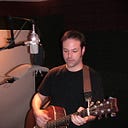Die Vegas
Several years back, just around the time I got the contract to publish my first novel, I was spending the holidays in England as I often used to do, and on New Year’s Eve night I found myself in a country pub in deepest darkest Norfolk.
Among those present happened to be a lady who worked in the British publishing industry. I’ve since learned that people “in publishing” are thick on the ground everywhere, especially, perhaps, in places like deepest darkest Norfolk; but at the time it seemed a startling, even possibly auspicious, coincidence. You’re in publishing? Well, so am I. Sort of!
When I mentioned that my first book was being published in America the following year, her eyes began to glint with skepticism, if not mockery. She asked what I was reading. (Publishing people almost invariably issue this request for a list favorite books when they find out you’re crashing their party — it always feels like an exam, one that you’re bound to fail. People can most often size me up pretty accurately just by looking at the shoes, but publishing people seem to need more data.)
“Um,” I mumbled. I’m not good at this question. My tastes are old fashioned and retrograde from any perspective. That is, I’ve never been a finger-on-the-pulse kind of guy. My lack of awareness of the contemporary world around me is semi-legendary. “The Long Goodbye?” I said, hopefully. “Lizard Music?”
She shook her head and waved these away. This wasn’t going at all well.
“What about Die Vegas?” she said.
Die Vegas? I had never heard of it. Sounded kind of edgy, possibly German. A nihilistic prose poem relishing the destruction of Nevada’s greatest city? Something to do with birds?
I weighed my options: pretend that yes, Die Vegas was my favoritest book of all time that I had neglected to mention just because it was so obvious; or admit, in a breezy manner, “Die Vegas? No, doesn’t ring a bell. Sounds edgy. And possibly German. Is it any good?”
I was still trying to decide which way to go when she said, “surely you’ve read Die Vegas. Being an American writer.” Not German then. She said the word “writer” in such a way as to imply that the jury was definitely out on that one, echoing, with precision, my own secret doubts. I felt exactly like the sort of person who was unfamiliar with, who never even stood a chance of ever becoming familiar with, that vastly important, seminal work of American literature, Die Vegas. Who did I think I was, anyway? Before my book had even been published my true nature had revealed itself: I was a failure as a novelist, and as a man.
“No,” I said, at last, giving up. “I haven’t.” Pause. “Sorry.” There was another lengthy pause, after which she dematerialized imperiously.
“Is it any good?” I said, to the empty air. My lack of familiarity with Die Vegas had ruined the New Year. I wondered if I’d ever live it down.
Several drinks and a full two hours later, at the bar waiting for my order, it hit me. I’m usually much better at scaling the British accent barrier.
“Dave Eggers!” I exclaimed, to the extreme puzzlement of the pint-laden barmaid.
Addendum: I once told this story at a Porchlight storytelling show. I can’t remember what the scheduled topic for the evening was, though I believe the story I was slated to tell was the one about almost getting killed in the van in a snowstorm in North Carolina. (Or maybe it was the one about staying in the Polish gulag… can’t quite remember.) But when I realized that Dave Eggers was himself in the room that night, I knew I had to tell this one. So I told the Die Vegas anecdote as a kind of non sequitur intro to the main story, which I launched into without further preamble or ceremony after I finished. (It got a big laugh from the audience after a brief pause while they worked it out, by the way: the most gratifying kind of laugh you can get, really.) The time limit was ten minutes, and I knew I’d never have time to finish the main story. When the time was up, I just stopped in the middle and said thank you.
After the show, Dave Eggers corralled me with great enthusiasm and told me how wonderful my story had been and how I had exactly the right idea on how to tell a story and how he had learned something from my performance. It was a bit of a relief because I didn’t know him and hadn’t been sure whether he was the sort of writer who would have a sense of humor about such things. (Few do, in my experience, in fact, though Eggers seemed like a good egg and was quite alright.) “Just tell the story as is,” he said, “and stop when your time is up. For isn’t life like that?” I didn’t know what to say, but it gradually dawned on me as he ruminated further on what life is like that he hadn’t actually heard my Die Vegas story like I thought. He must have come in late. It was disorienting after having accepted compliments for it, but not for it, as it turned out. And, I suppose, life is indeed like that.
